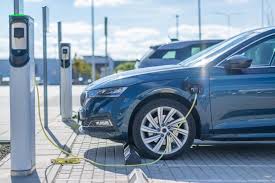U.S. Car Dealers Express Concern Over EV Transition
A recent study by CDK Global, a notable technology provider in the automotive industry, provides insight into U.S. car dealers’ sentiments about the transition to electric vehicles (EVs). The study points to a significant level of pessimism, particularly concerning EVs’ viability in their business models.
Key Takeaways from the Dealership Study
The study surveyed 250 dealers across the U.S. and found that over 65% are skeptical about EVs positively impacting their businesses. This skepticism is reinforced by the reported lack of customer interest in EV technology. However, the degree of negativity varies considerably by location, with dealers in rural regions expressing more doubt than those in EV-friendly states such as California, New York, and Washington.
The Role of Geography and Market Dynamics in EV Adoption
Geographical location significantly influences dealer and consumer attitudes toward EVs. The study reveals a clear difference between areas with high EV sales and those trailing behind. This regional variance includes factors such as local charging infrastructure, economic conditions, and cultural preferences.
Challenges Faced by Dealerships in Transition to EVs
Dealerships face multiple obstacles in adopting EVs, including adjusting to new technologies, upgrading facilities, and staff training. Although 89% of the surveyed dealers represent brands selling EVs, only 59% have begun transitioning their operations to accommodate these vehicles. Current infrastructure inadequacies, particularly in states with few public charging options like North Dakota, contribute to this slow adaptation.
Government and Industry Support for EV Adoption
Both the federal government and various industry stakeholders are addressing these challenges. The Biden administration has accelerated the development of a national charging network through initiatives like the Bipartisan Infrastructure Law and the National Electric Vehicle Infrastructure (NEVI) formula program. This expansion seeks to reduce range anxiety and make EVs accessible to more Americans.
Strengthening Dealer and Consumer Engagement in EV Transition
Boosting the national charging network is critical for enhancing EV viability, including in rural areas with slower adoption rates. However, the need for improved residential charging solutions is evident considering that the nearest public charger may be impractically distant for individuals living in these regions. Barriers like high installation costs, outdated electrical systems in older homes, and grid dependency can inhibit access to home charging and complicate EV adoption in rural areas.
Among promising developments to tackle these challenges is the potential for portable solar charging solutions. Off-grid charging and Solar EVs have seen a surge in search interest over the past two years as technology evolves to make solar charging a practical option for wider consumer adoption.
To overcome dealer skepticism and maintain EV rollout, several strategies should be prioritized:
-
- Enhanced Training and Support: Dealerships need more extensive training programs and support from manufacturers to boost confidence in selling and servicing EVs.
-
- Targeted Marketing and Consumer Education: Addressing common misconceptions about EVs through targeted marketing strategies and consumer education can help increase customer interest and acceptance.
-
- Adaptation to Regional Needs: Dealership strategies must be customized to suit the unique demographic and economic characteristics of their regions, recognizing the varied pace of EV adoption across the country.
The shift to electric vehicles is a significant change for the automotive industry, necessitating a collaborative effort from dealers, manufacturers, and policymakers. By focusing on regional needs, enhancing dealership capabilities, and leveraging government and industry support, the U.S. can effectively navigate the challenges of this transition, ensuring a comprehensive and equitable shift towards sustainable transportation.
Original Story at www.environmentenergyleader.com
